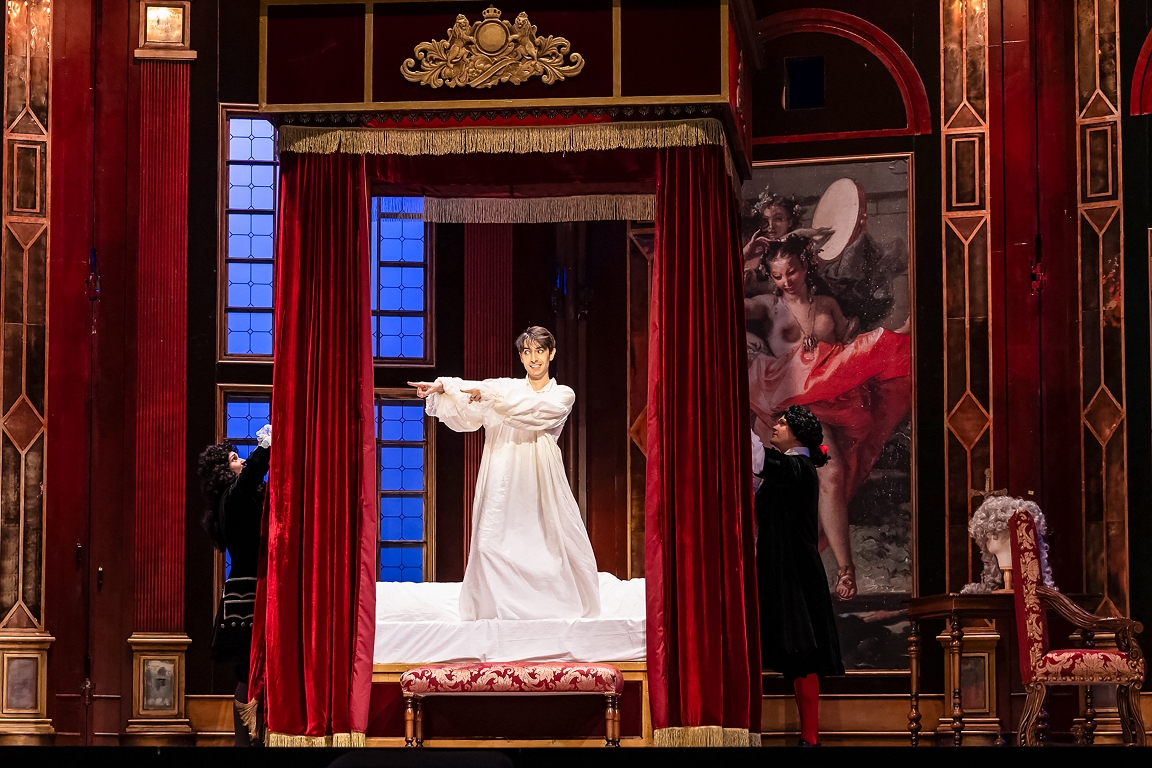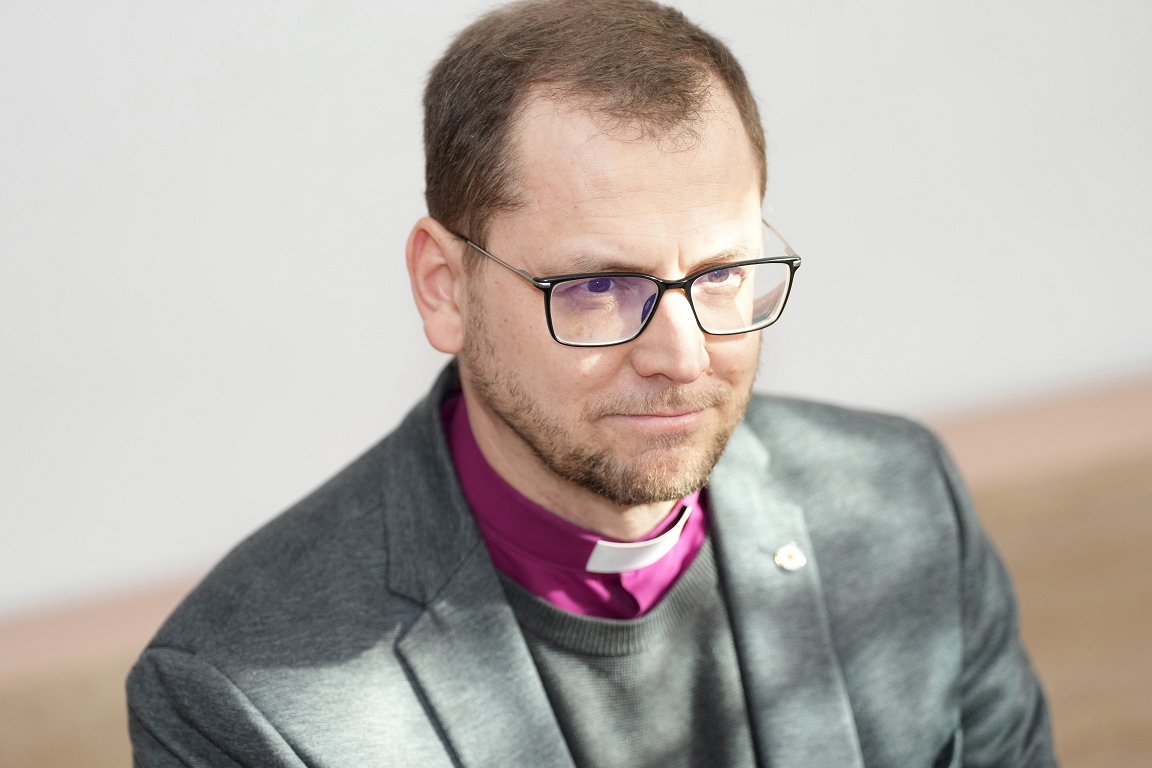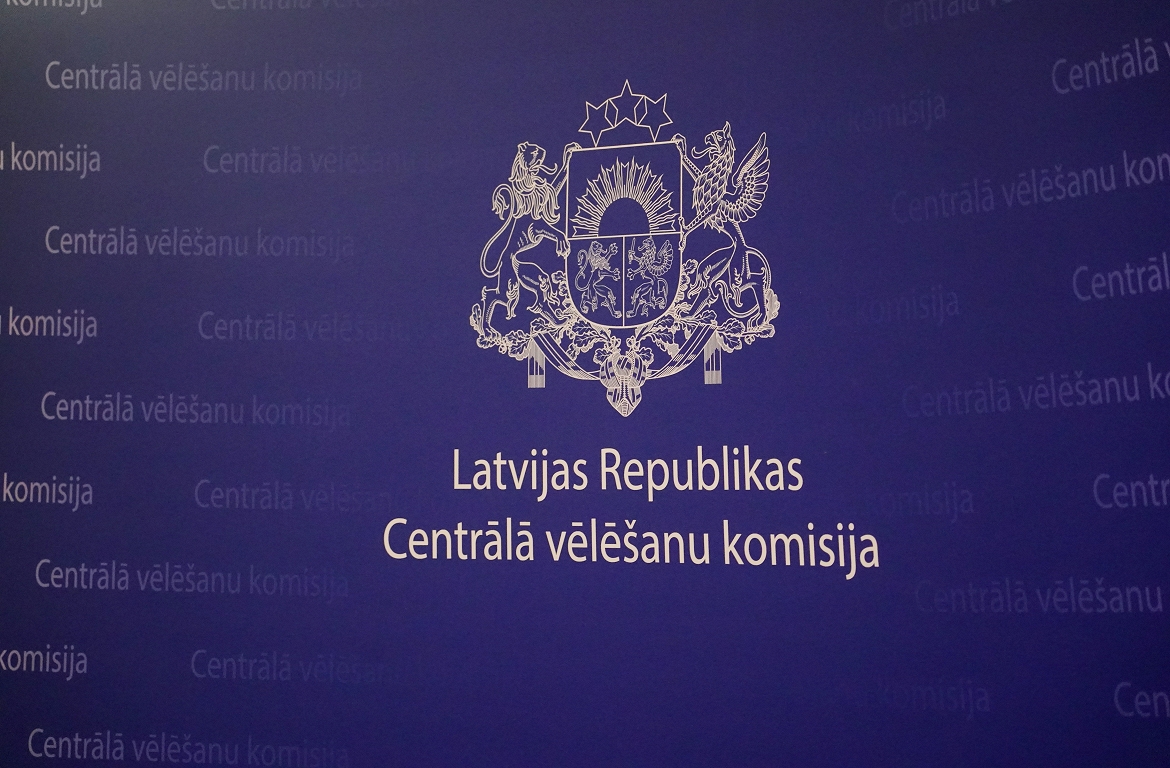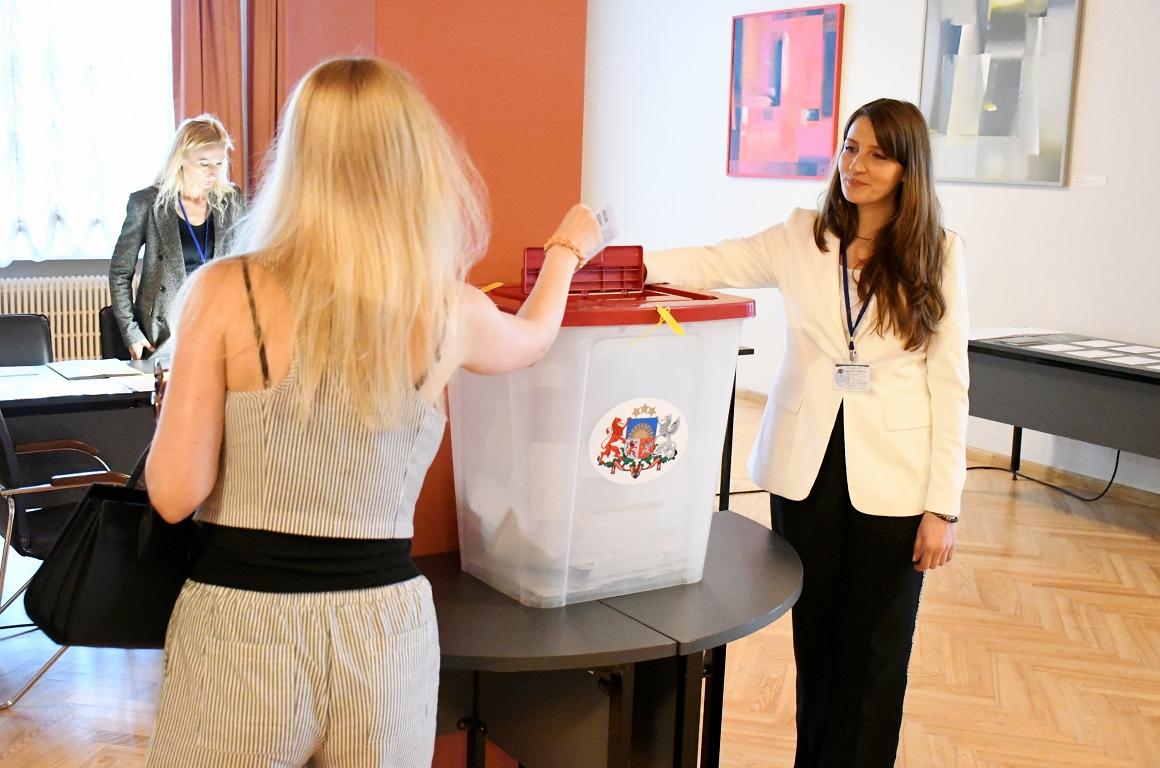King’s court and in bed. Opera Flavio, Langobard King New Study Review / Day

Baroque Music Grandmaster George Friedrich Handel Opera Flavio, king of Langobards There is a treasure that is very rarely seen in the depths of a history of dust. The famous Croatian and Austrian countertenor Max Emmanuel Cenchich staged it in the Bayreit Baroque Opera Festival in 2023, which he created with his companions in 2020 to build unknown Baroque opera unknown to the audience at the Bairate Markgrafiene Theater. He also sings in this show. The production, which was premiered at the Latvian National Opera (LNO) on May 21, returned to Latvia from Bayreit. The creative team includes stage designer Helmut Stirmer, costume designer Korin Gramostean and light artist Roman de Lagard. On the LNO stage, along with both outstanding « imports », Max Emmanuel Cenchiči and Remi Bresu-Feija were operating young Latvian opera artists.
Conductor Benjamin Bail was not needed to import, as Andris Veismanis, the musical director and conductor of the Riga production, is a real Baroque music expert. Under his opera in our opera, the great Handela was created in the year Alchinas A production that had a deservedly long life in the LNO repertoire and remembers everyone who has seen it. Now the audience in Riga was addressed by a witty, unjustified, full -time, musically bright and vital opera. Flavio, king of Langobards Production. The show lasts four hours, but time runs the wind wings because the production is interesting to listen and watch. There is no space for boredom, musically stage performance is smooth, and the characters are vivid both musically and actor. Expressive and unusual sounds with Baroque musical instruments – the theory and Baroque guitar (Christo Keo from Estonia), Klavesin (Gertruda Jerjomenko) and Baroque traverse (Kristine Stumbure, Maija Klavina) – the addition of the LNO Orchestra. The first violin was invited by Martha Wing, who has also studied the Baroque violin. During the Opera, at times it was also possible to see on stage.
With an ironic smile
Flavio, king of Langobards have a very atypical work of Handel and his groomed Italian opera seria in the context of traditions. He has created it as a political satire for the 19th century’s ruling power and Catholic absolutism, along with librettoist Nicholas Francesco Heim based on history facts, but wisely mixing cards (eras). The leading King of England, Charles II, is presented as Flavio, and the events of the 17th century intertwine with much older events described in the chronicles of the 19th century. In spite of the genre designation Dramma per musica, The performance of the opera’s characters and the lack of murder on the stage is not depressing. On the contrary, we watch the experiences and actions of the stage characters with an easy -to -ironic smile. Handel researcher, Vinton Din, has called it an antihero comedy with a tragic touch, almost the parody of Opera Seria. But let’s remain political satire and history.
In Riga’s newly seen production, the relationship and character of the heroes address us. No matter how complicated the twists and turns of the libretto, the dramaturgy is clear: the focus is on two pairs of lovers (Emily and Gvido, Theodata and Vitidge), whose relationship is sharpened by King Flavio’s passion for Theodata and the fight for the two king’s advisers, Emily’s father and Gvido’s father. The production is designed as a movie. With its baroque, theatrical luxury, toy, sex scenes and theatrical assassins it recalls Peter Grineveja’s movie Pattern contract. Today’s viewers in Flavio, the King of Langobards, are fascinated by the humor -permeated story, situation and portraits of heroes. The theatrical exaggerations and intentionally absurd, caricature smell. Dominated and attracted by the comic, funny, funny. In addition, the production is so human – there are no good and bad images, everyone is people with their weaknesses. There is a lot of sex here, but there is no vulgarity.
In the stage of scenography, there are the aesthetics of the end of the 18th century and the atmosphere of the Hamponcort Castle. In the interiors, we can recognize remarkable copies of Italian Baroque artists: Antonio Allegri da Coredzo (1489-1534) Zeus and Io and Giovanni Batistas Tjepolo (1693-1770) paintings The kingdom of flora A fragment showing a dancing half -naked nymph. Baroque interior scene shifts « conducted » by « mimic character – the presenter and at the same time a magician or a fate – by applying for ever -new to the storyline. During the reconstruction of the stage, there are other works of Handel himself (for example, Battaglia from Opera Rinaldo) and George Philip Telemen’s instrumental works, Antonio Very Aria has also been used. But it is the tradition of the creative work of Baroque composers.
Spectrum of affects
Atypical for Handel and he is also the fact that all the voices are used in this opera, both castrates (today’s countertenors) and women’s and men’s opera. Flavio The production in Riga gives us the opportunity to enjoy the performance of two world -famous countertenors. French singer Remi Bress-Fey has a real star in the role of royal flavio. A new, captivating, charming and passionate lover of life, who sees life and sexual communications as a play, is constantly falling in love, and throws in more and more embrace, unless the « nation » has to sleep with his wife. (The Historical Prototype of the Title – King Charles II – had 120 children from wedlock!) He is not vengeful and is eventually ready to laugh at everything and everyone, including himself. Remi Bress-Fey is enchanted with his high, cultivated counter-counter, his chants are crazy, sensitive, sophisticated, but not manner. The portrayal is also natural and plausible.
Perhaps it is because Max Emmanuel Chenčič’s responsibilities include both singing (he portrays Gvido) and the director of the show, the performers do not have to do anything to speak to music in this production. Gvido is not just a lover – obeying his father’s will, he becomes the killer of his beloved Emily’s father. Max Emmanuel Chenčič Alta Countertenor (mezzo -soprano) is a sound and virtuoso. Both vocal performance and actor play reveal the contradictory states of the hero, or so -called affects.
Fiery rage
Although the focus was on both outstanding countertenors, the Supervarone of the show was the new soprano Catherine Paul Felsberg in the role of Emily. Handel initially wanted the opera to be called Emily, and it was this hero who created the most aria. They are beautiful, emotionally very different and vocally complicated – both with virtuoso, bright coloring and flowing tunes, which Catherine Paul Felsberg sang in a warm, gentle voice. Emilia’s fiery fiery aras aria, which, based on temperamental acting, was effective, made the entire court. In the voluminous a cappella In soloadences, which is a hellish test for intonative durability, the singer demonstrated absolute stability.
The show had a number of new Latvian artists’ debuts, and not only did they sing a particular role for the first time, but some also participated for the first time on the opera house. Such a fire -baptism of Theodata was the mezzo -soprano Anna Amanda Stolere, who was debuted on the LNO stage. Excellent performance, both vocal and scenic. Among the characters in the production, she was distinguished by a particularly expressive body language, which clearly describes a simple girl who unexpectedly entered the king’s court and in bed and does not really know how to behave properly in the new environment. Anna Amanda Stoler was perfectly in a comically played, nervously manner -like movement score and did not fall out of the image for a moment.
For soprano Ilze Grēvele-Skaraine, who had long forged the quality of the interpretation of historically informed music, finally had the opportunity to prove his skills in Baroque singing in the LNO show. She did this convincingly in the role of King Adjutant Vitidge. Tenor Martins Zvīgulis and Bariton Daniil Pogoriless organically involved competing statesmen Ugone and Lotario. A striking accent of the show was the comic, intentional singing of Inese Ermane in a court lady’s performance scene. You need to teach it!
The fact that only a few of the operas composed by about forty Handel are staged in theaters, they are taught in music schools that operas are the most insignificant part of Handel’s creative heritage that is not worth paying attention to. Well, we see that it is not. Albeit Flavio, king of Langobards is one of the most rarely staged Handel operas, a masterpiece of talented comic with tragic. After the three newly happened shows Flavio The LNO will return to December.
Flavio, king of Langobards
LNO 17, 19.XII 19, 21.XII 15
Tickets Opera.lv EUR 20-75








